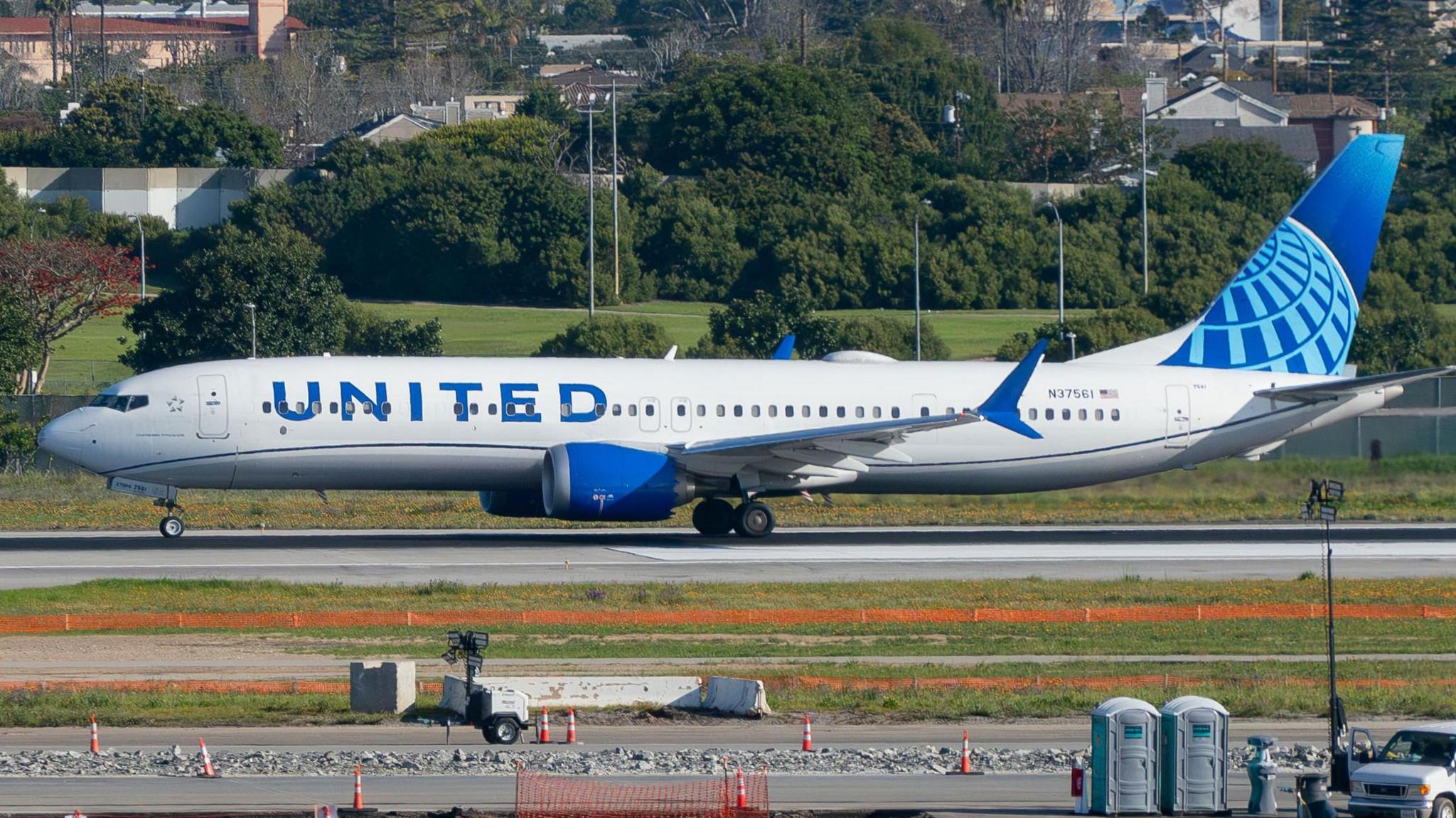United Airlines says Boeing blowout cost it $200m

United Airlines was forced to ground its Boeing 737 MAX 9 fleet in January
- Published
United Airlines has blamed Boeing for a $200m (£161m) hit to its earnings in the first three months of this year.
The carrier was forced to ground its Boeing 737 MAX 9 fleet for three weeks after a mid-air cabin blowout on an Alaska Airlines flight in January.
United said that pushed it to a pre-tax loss of $164m for the first quarter.
The airline said it "would have reported a quarterly profit" otherwise.
However, the loss was smaller than Wall Street expected and United's shares rose by more than 5% after the announcement.
United has 79 Boeing 737 MAX 9s in its fleet, more than any of its rivals, and second only to Alaska Airlines.
United and Alaska were forced to cancel thousands of flights as inspections were carried out in January before the US aviation regulator cleared the planes to resume flying.
Safety regulators are now reviewing United's own operations, after other safety emergencies at the firm in recent weeks.
United said that the ongoing review would delay the firm from putting new planes in to service until at least September.
United told investors that its operations were also impacted by delays to deliveries of Boeing planes.
"We've adjusted our fleet plan to better reflect the reality of what the manufacturers are able to deliver," United's chief executive Scott Kirby said in a statement, external.
Earlier this month, Boeing paid $160m to Alaska to make up for losses the airline had suffered.
And speaking at a conference in March, the firm's chief financial officer Brian West said that its customers like United Airlines had been "supportive of everything we're trying to do to enhance safety and quality for the industry".
Referring specifically to the pay out due to the events on 5 January, he added: "We continue to stand behind our customers with that responsibility.”
Boeing recently faced new pressure after a whistleblower reported safety concerns over the manufacturing of some of its planes to US regulators.
Engineer Sam Salehpour accused Boeing of taking shortcuts in the construction of its 787 and 777 jets.
He said he was "threatened with termination" after raising concerns with bosses.
But Boeing said the allegations were "inaccurate" and added it was confident its planes were safe.
Mr Salehpour is set to be the key witness at a US Senate hearing on 17 April.
On 5 January, a door plug on an Alaska Airlines 737 Max 9 blew off shortly after take-off, terrifying passengers, and forcing an emergency return to the Portland, Oregon airport.
The latest incident raised fresh questions about the safety of Boeing's aircraft.
The company faced intense scrutiny after two fatal crashes of 737 Max 8 passenger jets in 2018 and 2019, which killed 346 people.